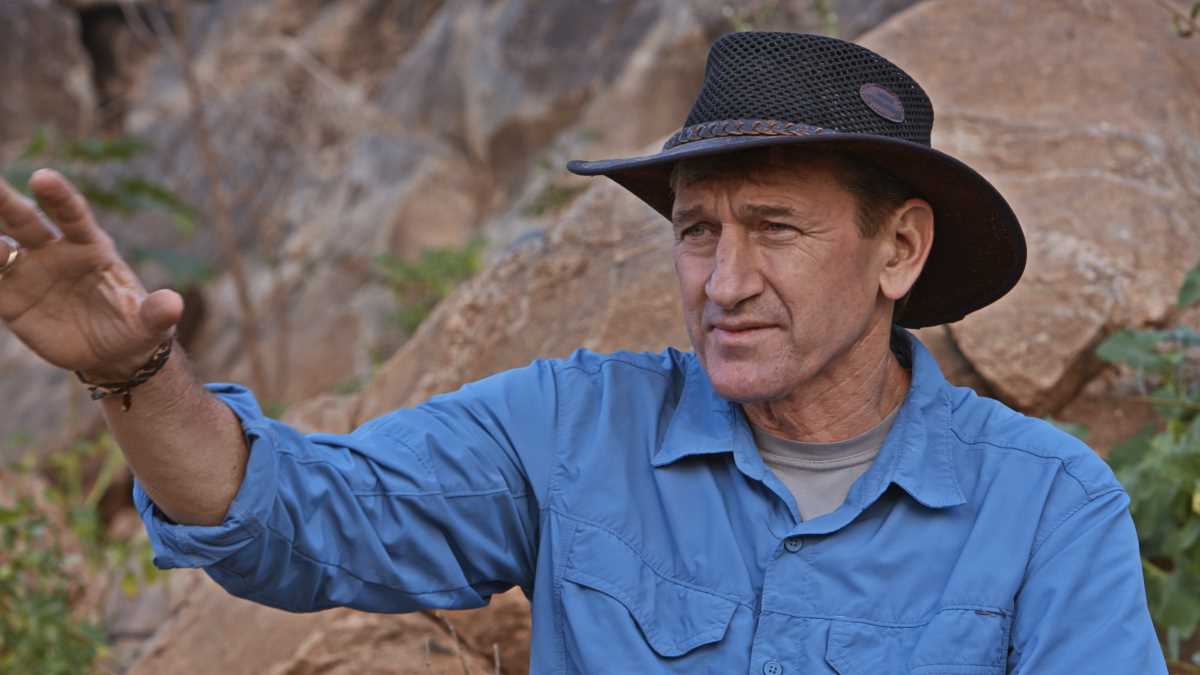
University of Texas at Austin Professor Scott Tinker has spent his life trying to solve what he calls a dual challenge: achieving affordable energy access for all while protecting the environment.
Switching to clean and renewable energy may seem like the answer to this challenge, but according to Tinker, the Edwin Allday Endowed Chair of Subsurface Geology, there is no such thing as true renewable energy. Because harnessing energy from the sun, wind, and water requires earth materials, he says, the process of creating turbines, solar panels, and batteries for electric vehicles may be just as dirty as using oil or coal.
Tinker will visit Lehigh on April 30 to discuss “The Dual Challenge of Energy and Climate,” as part of the Horizons Seminar Series sponsored by the Institute for Cyber Physical Infrastructure and Energy (I-CPIE), the Office of Sustainability, and the Environmental Studies Program. The event begins at 12:10 pm in Neville Hall, Auditorium 1, on Lehigh’s Asa Packer campus. The lecture is free and open to the public.
“We are all looking forward to hosting Dr. Tinker,” says I-CPIE Director Shalinee Kishore, the Iacocca Chair Professor of Electrical and Computer Engineering. “We hope his seminar will help foster Lehigh’s continued conversations—and actions—toward enabling a more sustainable future for all. Lehigh’s educational and research missions are tightly tied to society’s joint challenge of energy and climate.”
Breena Holland, associate professor of political science and the Environmental Initiative in Lehigh’s College of Arts and Sciences, says Tinker’s seminar will provoke thought among advocates of renewable energy.
"The renewable energy revolution is challenged by problems of scale and environmental impact that need to be understood by advocates of environmental protection and energy justice,” she says. “Dr. Tinker thinks these challenges require ongoing efforts to develop and minimize the environmental impact of fossil fuel energy sources. This is an important perspective for environmentally oriented students to grapple with because it is widely shared by many people, especially those in positions of power."
Tinker, who is director emeritus of the Bureau of Economic Geology at UT Austin, has visited over 60 countries to research and assess different types of energy and their consequences on the environment, while connecting with industry leaders, government officials, and nongovernmental organizations.
He found that there is a connection between energy, environmental protection, and wealth. Rich countries can afford more clean energy, and they can afford to clean up after their dirty energy production while poor countries cannot.
Additionally, rich, clean countries such as the U.S. consume cheap products made in factories that produce huge amounts of carbon emissions. The countries that manufacture products for Americans and other rich countries will experience higher levels of pollution, but the entire world will experience the greenhouse effect caused by increased carbon dioxide in the environment which contributes to climate change.
As part of his activism, Tinker has founded Switch Energy Alliance, a nonprofit organization that provides educational materials about the energy crisis for online, in-classroom, professional training, or museum use.
Tinker’s work in the media includes co-producing the 2012 documentary film Switch, in which he crosses the globe to investigate alternative energy sources. In Switch On, which was released in 2020, he delves into the topic of energy poverty as he visits different families in poor countries. Tinker is the host of PBS’s Energy Switch and the voice of EarthDate, which is featured on radio stations all across the country.
He is a Fellow of the Geological Society of America and has served as president of several international professional associations. He received numerous awards, including the Campbell Medal from the American Geosciences Institute, the Michel T. Halbouty Outstanding Leadership Award from the American Association of Petroleum Geologists, the Don R. Boyd Medal for Excellence in Gulf Coast Geology from the Gulf Coast Association of Geological Societies, and the Ben H. Parker Memorial Distinguished Service Medal from the American Institute Professional Geologists.
—Emma Eggelston ’24 is a student writer for the P.C. Rossin College of Engineering and Applied Science
